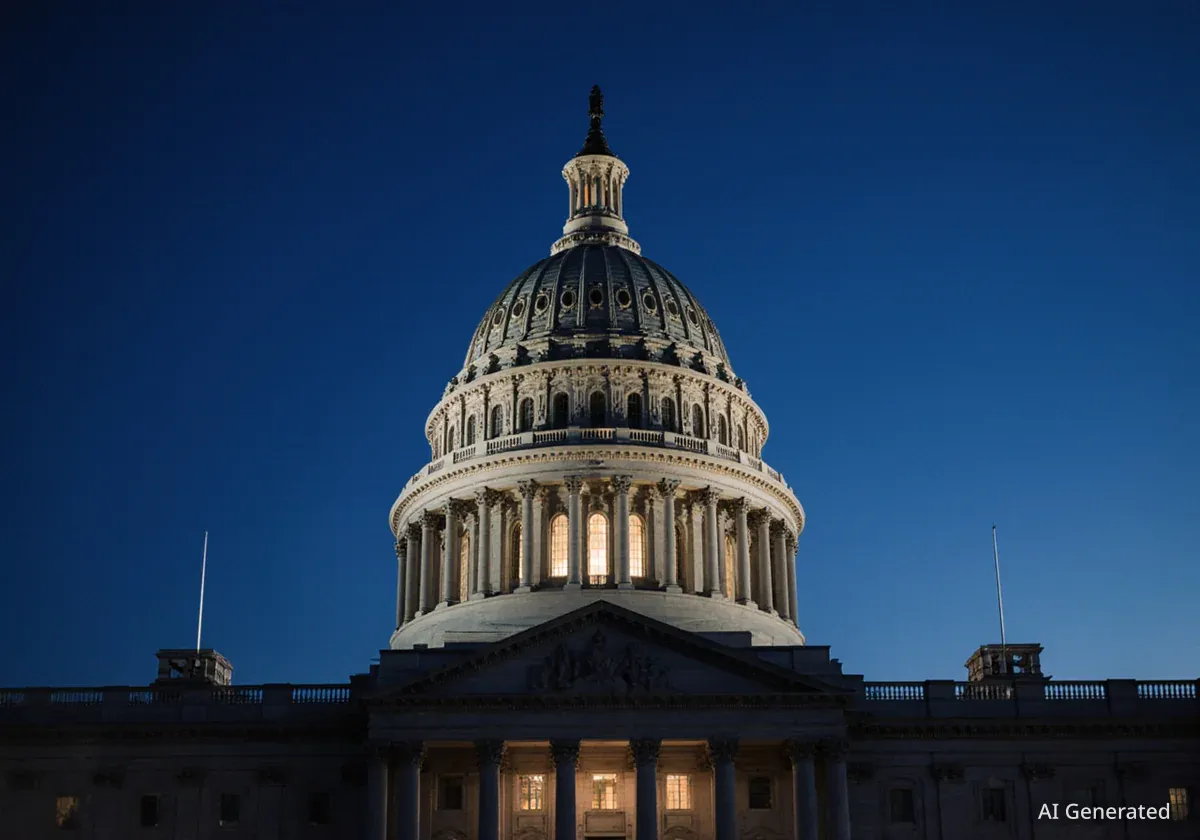The Trump administration is increasing its scrutiny of academic publishing, citing long-standing issues within the scientific community. Department of Health and Human Services (HHS) Secretary Robert F. Kennedy Jr. and National Institutes of Health (NIH) Director Jayanta Bhattacharya have voiced concerns about research fraud, the scarcity of qualified peer reviewers, and the high costs associated with journal subscriptions and open-access fees. These criticisms are part of a broader effort to reshape the scientific enterprise and rebuild public trust in research.
The administration's actions include policy changes and public statements aimed at addressing perceived biases, misinformation, and access barriers in scientific literature. While some experts acknowledge the existence of problems within academic publishing, they question the administration's proposed solutions and motives.
Key Takeaways
- HHS and NIH leaders criticize academic publishing for fraud, peer review issues, and high costs.
- New policies aim to increase research reproducibility and public access to findings.
- Experts agree on existing problems but are skeptical of the administration's proposed reforms.
- Concerns exist that the administration is using these issues to advance its political agenda.
- Proposed changes include capping article processing charges and potentially creating a government-run journal.
Criticisms of Academic Publishing
For many years, various members of the scientific community have pointed out significant flaws in academic publishing. These include instances of research fraud, the rise of 'paper mills' that produce fake research, and a shortage of experts willing to serve as peer reviewers. The financial aspects also draw heavy criticism, specifically the high costs of journal subscriptions and the fees researchers must pay to make their articles open access.
These issues are often linked to academic incentive structures. Universities and research institutions frequently reward scientists for publishing a large number of papers in journals with high citation rates. This system can inadvertently encourage a focus on quantity over quality and novel results over replication studies.
Fact Check
- Research indicates a notable increase in reported research fraud over the past 15 years.
- The academic publishing industry is a significant for-profit sector, valued at approximately $19 billion.
Administration's Response and Policy Changes
Secretary Kennedy and Director Bhattacharya have become vocal critics of the publishing industry. They are using their positions to implement new policies and publicly address what they call systemic problems. One key focus is on improving the reliability of scientific findings.
"Part of his strategy to rebuild public trust in science will include focusing on replicable, reproducible, and generalizable research as the basis for truth in biomedical science," Bhattacharya stated in an August memo.
He added that the prevalent "publish or perish" culture often "favors the promotion of only favorable results, and replication work is little valued or rewarded." This highlights a perceived imbalance where new, positive findings are prioritized, while studies confirming previous research are undervalued.
Background on 'Publish or Perish'
The term "publish or perish" describes the pressure on academics to constantly publish research to maintain or advance their careers. This system often ties promotions, tenure, and funding opportunities directly to publication records, leading to concerns about research quality and integrity.
In July, the NIH expedited a policy that mandates federally funded researchers to deposit their work into public-access repositories, such as PubMed Central, immediately upon publication. This move aims to increase transparency and public access to scientific findings, a goal many science advocates support.
Skepticism and Concerns Among Experts
While many experts agree that problems exist within scientific publishing, they express doubt about the effectiveness of the Trump administration's proposed solutions. Some also warn that the administration might be exploiting these real issues to advance its own political agenda.
Luís A. Nunes Amaral, an engineering professor at Northwestern University, noted, "We all know there are enormous problems facing science and scientific publishing. But a lot of the scientific community is pretending there are no problems." He added, "This attitude empowers demagogues to then come and point out issues that are real and recognizable. This gives them some sense of [legitimacy], but in reality they are not trying to improve things; they are trying to destroy them."
Amaral co-authored a paper that identified a surge in research fraud over the last 15 years. His comments reflect a concern that genuine problems are being leveraged for broader ideological aims, rather than for true improvement of the scientific process.
Government Control and Journal Integrity
Beyond terminating hundreds of NIH research grants deemed ideologically misaligned and proposing a 40 percent budget cut for the NIH, the administration's efforts could give the government greater control over scientific journals. These journals have traditionally served as independent gatekeepers of validated scientific research.
Secretary Kennedy has openly criticized leading medical journals like The New England Journal of Medicine and The Lancet, calling them "utterly corrupt." During his 2024 presidential campaign, he spoke of taking legal action against them. As HHS Secretary, he threatened in May to prevent government-funded scientists from publishing in these journals, alleging pharmaceutical industry control.
The influence of the pharmaceutical industry is a concern shared by some journal editors. Marcia Angell, a former editor-in-chief of NEJM, wrote in 2009 that researchers' financial ties to drug companies made it difficult to trust much of the published clinical research.
However, Angell and two other former NEJM editors explained in a June opinion article for STAT that journals did not create the problem but that researchers have become reliant on pharmaceutical company support. They noted that journals have implemented measures, such as requiring authors to disclose financial ties, to reduce industry influence.
The former editors stated, "Kennedy is right that the dependence of medical research on pharmaceutical funding is a problem. But Kennedy's actions as head of HHS—including his deep cuts to the National Institutes of Health and targeting of our best medical journals—will make that problem worse."
Kennedy has also suggested creating an in-house government journal to combat corruption. Ivan Oransky, a medical researcher and co-founder of Retraction Watch, expressed skepticism about this idea, questioning its potential credibility.
"I'm not quite sure what creating a journal accomplishes. It's just another journal that will have to compete with other journals," Oransky said. "The other question is, will it be fair and balanced? Will it be interested in what’s true and getting good science out there or only in science that [Kennedy] believes is worthwhile? That’s a real fear given a lot of his pronouncements and what he’s trying to do."
Oransky acknowledged that academic publishing is a "hot mess" that fosters "awful incentives." However, he believes that superficial changes, like "Rearranging deck chairs on the Titanic," will not solve the underlying issues. He suggested that the NIH, as a major funder of research, could change its own incentives, such as de-emphasizing citations and high-impact-factor journals in its peer-review system.
New Journals and Access Policies
Other officials have also challenged the integrity of mainstream medical journals. Edward R. Martin Jr., then-interim U.S. attorney for the District of Columbia, sent letters to journals like The Journal of the American Medical Association and CHEST in April, questioning them about alleged political bias.
Before his current role, Director Bhattacharya, along with Martin Kulldorff, a former Harvard University biostatistician, launched The Journal of the Academy of Public Health. This journal, linked to the right-wing news site RealClearPolitics, aims to be an alternative to mainstream publications. During the pandemic, Bhattacharya and Kulldorff co-authored the Great Barrington Declaration, which advocated for scaling back stay-at-home recommendations and drew criticism from NIH officials.
Critics worry that this new journal could become a platform for research aligned with the Trump administration's views. However, the journal does offer some policies that science advocates support, such as paying peer reviewers and making all content freely available.
While open access to scientific research is a positive step, Meagan Phelan, communications director for the Science family of journals, cautioned that it alone will not restore public trust. She emphasized the need for scientists to listen to public concerns and explain the scientific process more effectively.
"If your goal is to restore public trust, you also have to listen to areas of public interest and concern," Phelan noted. "What kinds of things will they do alongside publishing to really listen to public concern and help restore public trust? It’s not as simple as just making this stuff free."
Addressing Financial Incentives
Director Bhattacharya has also pledged to address the financial aspects of the $19 billion for-profit academic publishing industry. Academics often author and peer-review articles without compensation, leading to criticism that the industry is exploitative.
In July, the NIH proposed capping article processing charges (APCs). These fees, which can range from hundreds to thousands of dollars, are levied by some journals on researchers to make their publications freely available. Bhattacharya stated that capping APCs aims to end "perverse incentives" that enrich the publishing industry and to prevent a "small number of scientific elite to say what’s true and false."
Challenges to Reform
While scientists and open-access advocates have also criticized APCs, some believe the NIH's plan to cap them is not a comprehensive enough strategy for reform. Jennifer Trueblood, director of the cognitive science program at Indiana University at Bloomington, highlighted the complexity of the publishing system.
"Publishing now is a really complicated system that has a lot of competing, intertwined goals. It’s not easy to change one lever and think it’s going to have the effect that we want," Trueblood said. "On the surface, capping APCs may make sense to a lot of people. But how would a commercial publisher respond to that? They could easily just shift costs back to libraries and readers."
Trueblood also stressed that reforming the incentive structures that tempt some scientists to publish faulty research cannot be achieved by the NIH alone. She believes that scientists themselves must lead the change, and academic institutions need to rethink how they evaluate scientists to ensure their evaluations do not support a system that benefits commercial publishing at the expense of scientific integrity.





